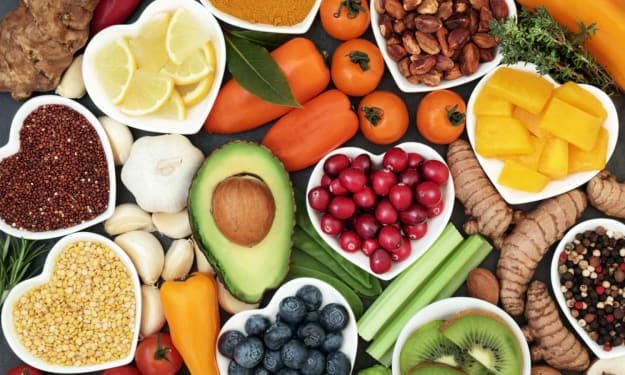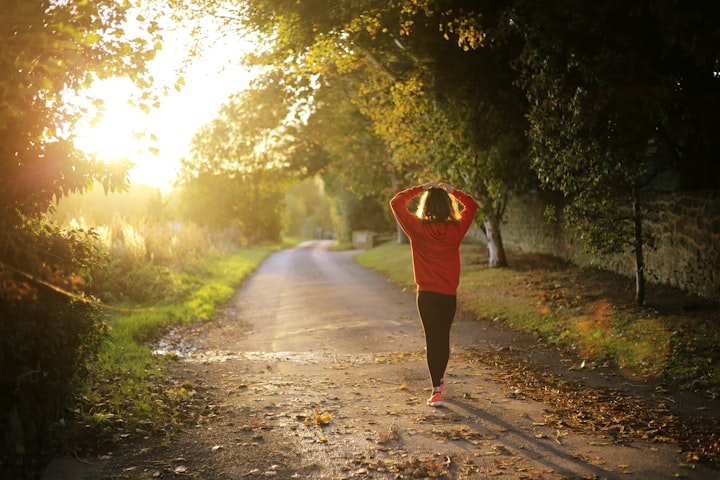
Personal health is one of the most misinformed and manipulated areas of life. It's an area where the coldly scientific and the very emotional collide, so it's understandable if certain details are misstated or distorted. When you factor in the millions that may be made with a headline-grabbing new diet fad, it's unavoidable that we'll hear some dubious diet and exercise advice. To help you distinguish between fact and fiction, I enlisted the expertise of a variety of health professionals who shared their recommendations for some of the most frequent health myths—and the realities behind them.
Myth#1 Egg Yolks Are Harmful to Your Health
According to Mashfika Alam, a doctor with online health consultancy iCliniq, the delicious yellow center of eggs gets a bad rap from health reports, and she urges us to reconsider the assumption that egg yolk might cause heart disease or atherosclerosis due to its "bad cholesterol." "Perhaps because the health benefits of egg yolk were just recently discovered, but egg yolk is advised for everyone, including patients with heart disease, because it is high in HDL, a good cholesterol that really counteracts the effects of bad cholesterol," adds Alam. "Thus, unless allergic, one egg a day for everyone, at least five days a week, is a healthy thing."
Myth#2 "Starving Yourself" Can Help You Lose Weight
The "starvation diet," which involves drastically reducing your daily calorie intake, may appear to be an efficient way to shed pounds quickly. In fact, a drastic change in your dietary habits can have the opposite effect. "Eating too little or starving yourself is a horrible idea," Alam explains, "and it really leads to rebound weight gain." "For a long time, this has been a popular belief among young teenage girls. Eat a well-balanced, low-calorie diet to assist you lose weight."
Myth#3 Coffee has the potential to stifle a child's development
"No conclusive evidence has been made to suggest a link between coffee drinking and poor growth," Kristen Scheney, a nutrition expert with CCS Medical, says. "The foundation of this fallacy is the belief that caffeine in coffee can cause osteoporosis, a vitamin D shortage that causes weak bones." She underlines that the findings suggest that even if caffeine does have an effect, it is minor and may be stopped by keeping a regular calcium intake. That isn't to argue that kids should start drinking it (the caffeine would still have them bouncing off the walls). But it won't stop them from growing.
Myth#4 Arthritis is developed by cracking your knuckles
Cracking your knuckles can be extremely irritating, and it may cause people to avoid sitting near you for an extended period of time. However, contrary to popular belief, it will not cause you to get early-onset arthritis. "This old wives' tale stems from early speculation," adds Scheney, "before there was a greater grasp of what actually occurred when one cracks their knuckles." "The 'crack' is merely the popping of bubbles in the synovial fluid that lubricates the hands. While this practice does not cause arthritis, it does have certain detrimental repercussions, such as decreased grip strength and hand edema."
Myth#5 Addiction is a Personal Choice
Just as someone addicted to drugs or alcohol has the option to begin using the medications in the first place, they also have the option to stop using them. However, this is founded on erroneous logic. "While the majority of people initially choose to take a substance, no one would ever choose addiction for themselves." According to Sal Raichbach, a certified psychologist at the Ambrosia Treatment Center, "addiction is an all-encompassing issue that eventually swallows the individual." "Continued substance use alters the way a person's brain functions over time, making addiction unavoidable and catastrophic." Once the brain has been altered, it is forced to obtain and consume more of the material, regardless of what or who is involved.
Myth#6 Energy drinks contain ingredients that boost alertness
"Despite the fact that these products contain a range of vitamins and extraneous chemicals, they all have the same active ingredient, which is caffeine," Tavel explains. "My recommendation is to stick to coffee." Don't bother with the 'energy drinks.' They're a complete waste of money."
Myth#7 Eating before going to bed makes you gain weight
"There is no set time after which you should fast before going to bed," Lohre explains. "You want to avoid overeating during the day and consuming junk food in general—we just eat more junk food at night." She recommends that if you're hungry before bed, don't starve yourself; instead, consume a small protein-rich snack (like a protein shake) in the evenings to help boost your metabolism. Here are some nibbles to keep you going while you're on the go. "Eating something just before night will not hinder any fat-loss goals as long as you are on track with your calories for the day," she says.
Myth#8 Cold, Wet Weather Can Cause a Cold
And there's a common health misconception about developing a cold: Masters says he's still asked if it's possible to catch a cold by going outside in the cold with wet hair. "I tell my patients that the only way you can get sick is via bacterial or viral infections," Masters adds. "However, your mother and father weren't entirely wrong when they advised you to wear a cap before going outside with wet hair. When you or the clothing you're wearing is wet, water carries heat away from the body considerably faster than air, thus you lose heat more quickly. And you're more likely to get hypothermia and frostbite if you lose heat quickly."
Myth#9 You Should Exercise for at Least One Hour Every Day
"Regular exercise provides numerous health benefits," adds Hershenson, "but putting in a workout every day is not always practical or even encouraged." "Everyone requires a day of rest to allow the body to heal. Furthermore, any activity, even a 15-minute walk, is beneficial. Don't deny your body the opportunity to move a little because you don't have enough time for a full workout.""
Myth#10 You Can Eat Whatever You Want If You Exercise
When you read stories about professional athletes eating a 10,000-calorie diet, it can seem that an active, calorie-burning lifestyle can eliminate the need for us to keep track of what we eat Kennihan replies, "This could not be further from the truth." "Our individual metabolism determines how many calories we burn at rest and while exercising: If we eat more calories than we burn on a regular basis, regardless of how much exercise we do, our bodies will store these extra calories as fat."
(click here for one of the best flexibility and fitness programs I personally prefer)
Wrapping this up :
In conclusion, we now highlight one 10 of numerous myths regarding the idea of health in our daily life, i hope that this article was beneficial to you.
Best regards!





Comments
There are no comments for this story
Be the first to respond and start the conversation.